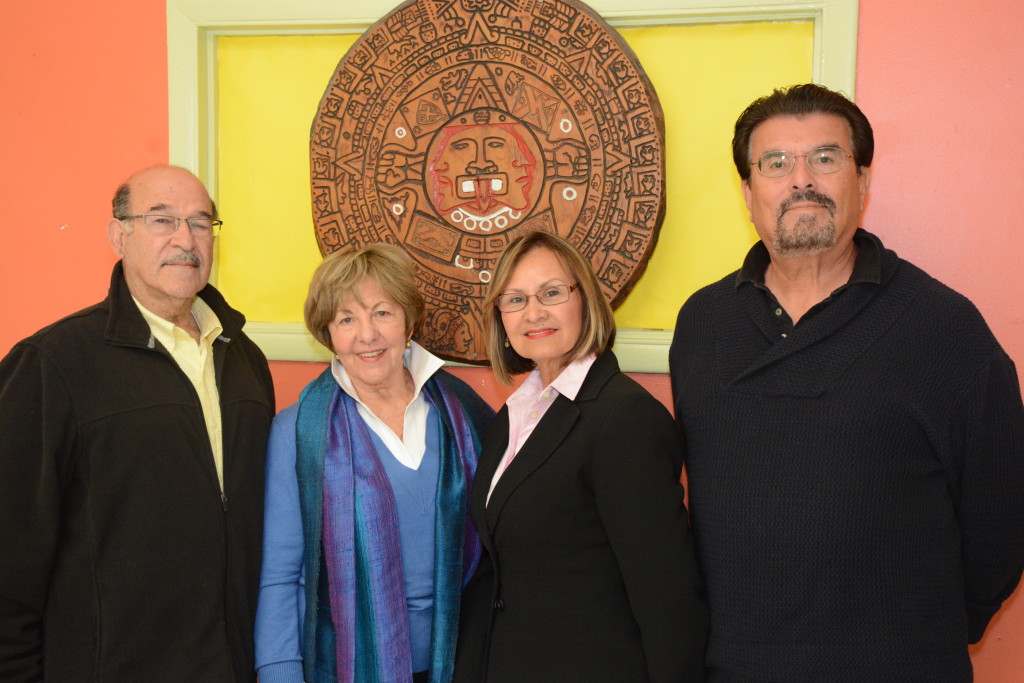Latinos Underrepresented in Teaching and Other Jobs in OUSD
Apr 16, 2015
Posted in Education/Schools/Youth, Equal Rights/Equity, Immigrant Rights, Labor
Supt. Antwan Wilson: “We have to embody the diversity of this community”

By Ken Epstein
While Latino youth make up 41 percent and still growing numbers of students in the Oakland Unified School District (OUSD), they are a disproportionately small part of the OUSD workforce, significantly in the classroom, where only 13 percent of the district’s 2,120 teachers are Latino or Hispanic.
A number of Latino high school students and graduates report that they never had a Latino teacher during the years they attended school in the district.
Latino workers are significantly underrepresented in almost every major job classification. The numbers, which were released by the school district to the Latino Education Network (LEN) in September 2014, are stark.
Among 240 custodial services workers, 7.5 percent are Latino; 125 principals, assistant principals and child center administrators, 21.6 percent; 105 members of the staff of the OUSD police department, 10 percent; 130 food preparers and others in nutrition services, 9.4 percent; and 864 teachers, aides and other staff in special education, 10.3 percent.
Among the reasons that these statistics are important is that students need role models they recognize and the ability of teachers and other school staff to deeply understand the needs, family lives and culture of students directly impact the success of children in schools, according to many educators.
Another reason is that the OUSD is the second largest employer in Oakland with 7,664 employees, and its hiring and contracting policies are important to everyone who lives in the city. When the school district does not hire Latinos, it impacts workers and the educational futures of families of children who attend the schools.
According to Victor Martinez, LEN steering committee member, the district for years has claimed to be sympathetic about need to increase the numbers of Latino teachers and other employers, but nothing changes.
“Latino groups have been raising issues for 40 years, and it seems we’re still in the same place,” he said. “We’re not interested in appeasement or window dressing. We’re interested in systemic change, institutional change,” he said.
Says Emma Roos, also a LEN co-chair, “We continue to work with the district, through community advisory committees and finding areas where we can be of assistance.”
“We see small changes, new faces, but nothing dedicated to the urgent needs of Latino students,” she said.
Added LEN member and lifelong educator Jorge Lerma, “Though Latinos are large in number, things are done for us but without us. Latinos are not involved in designing and implementing and bringing their life issues into (educational programs).”
“The Latino community is significantly underrepresented in decision making, and that reflects in academics at the schools,” said Lerma.
Symptomatic and particularly upsetting, said Roos, is that the district has only 28 bilingual aides to help out in the classrooms, and only 14 are Spanish speaking. Roos is also concerned that number of high achieving students who were honored at the OUSD annual Latino Honor Roll dropped this year after going up for several years in a row.
“We’re calling our status a state of emergency,” said Lerma. “They’re calling it ‘unrecognized bias,’ but it’s recognized by us.”
OUSD Supt. Antwan Wilson in a public statement pledged to work with Latinos to make changes. “To lift up and meet the needs of our growing Latino community, we have to embody the diversity of this community,” he said.
He said the district is working with the Unity Council´s Latino Men & Boys program “in eight of our schools serving over 200 young men and their families, providing academic support, male mentorship, and health and wellness programs, as well as career development and culturally-based activities.”
In an email to members of LEN, Brigitte Marshall, OUSD Chief Talent Officer, head of the human resources department, wrote about the efforts the district is taking to improve hiring of Latinos.
“Several months ago, I initiated a demographic comparative analysis of departmental staffing from which the demographic imbalance of various district departments could clearly be seen,” Marshall wrote.
“As a result of this, I have started the work of naming the issue with department leaders and working with them to develop strategies to improve their recruitment and hiring practices to ensure progress toward more representative staffing.
“We are challenged by the current limitations of our data tracking capabilities and recognize that the need to be able to demonstrate progress in hiring diversity rests in part in our ability to track the data correctly.”
Roos said she was glad the district was seeking to improve data collection, “But if legal, moral and educational issues are once again trumped by technical glitches, we are all lost.”